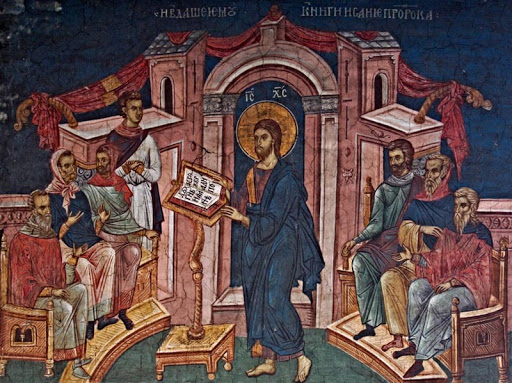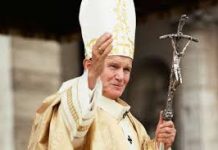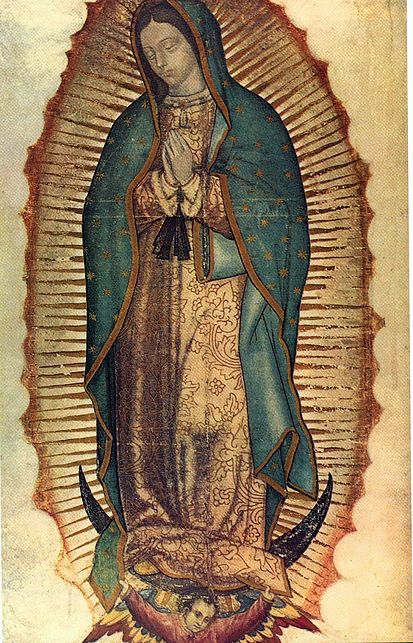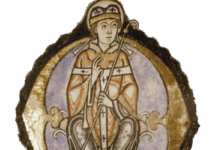‘How hard it will be for those who have wealth to enter the kingdom of God’ (Mk. 10:24).
As with many of Our Lord’s sayings, this one is often misinterpreted and seen as a blanket condemnation of those who are wealthy. In order to understand in a deeper manner what Our Lord is actually teaching us it may be helpful first to consider how one can enter the kingdom of God. In St. Luke’s Gospel, Our Lord says, ‘Blessed are you poor for yours is the kingdom of God’ (6:20). At face value it seems that a state of material poverty guarantees entrance in God’s kingdom but this is not the case at all. Nor is Our Lord is beatifying or elevating an entire social class. In the Judaism of Our Lord’s time, the term poor was practically synonymous with holy and pious or godly. In the Gospel, the poor person is the one who is devoted to God, one who by faith has placed all his trust in God. This form of poverty can characterize both the materially poor and the rich alike. Material poverty is a relative term. By God’s grace and through hard work many of us have most if not all of our material needs met. There is no sin in this. The Gospel is not about the redistribution of wealth, and the materially poor by reason of their material poverty alone are not spiritually superior to people of means, as modest as these may be.
The Gospels tell us that Our Lord and His disciples were supported in their ministry through the generosity of women whose names are given: Mary Magdalene…and Joanna…Susanna, and many others, who provided for them out of their means (8: 2-3). The same is true today. The Church’s mission which carries on the mission of Our Lord is aided and supported through the generosity of the faithful. The Catechism of the Catholic Church teaches us that the faithful are obliged to assist with the material needs of the Church, each according to his own ability (#2043). Our lack or abundance of material wealth is not what determines our closeness to God; it is rather our devotion to God and our trust in Him. The temptation of wealth is that it can cause us to put our trust in something other than God and, of course, wealth can also provide us with many temptations that can lead us away from God. Trusting in God and His Divine Providence is the heart of the Gospel. This disposition of trust is solidly based on the foundation of humility and is expressed by our willingness to take up our cross and follow Our Lord. In a letter written to all the faithful, St. Francis of Assisi, whose feast was celebrated earlier this month, further extrapolates the meaning of this evangelical poverty. We must not be wise and prudent according to the flesh. Rather we must be simple, humble and pure. We should never desire to be over others. Anyone, regardless of wealth can be tempted by the lust of domination.
Being conformed to Christ as priest, prophet and king in virtue of our baptism is the single most important thing in our life. In this regard all of us are wealthy beyond measure. Because of this, our lives have a profound dignity and meaning and we are able no less to give meaning to our suffering; because the only way that suffering can be redeemed and become redemptive is by this sharing in Our Lord’s priesthood. This is why the Apostle Paul – a model of Christian discipleship for all of us – said, I count everything as loss because of the surpassing worth of knowing Christ Jesus my Lord (Phil. 3:8). Our Lord does not condemn the rich but He does remind us that wealth can potentially be a source of confusion for us. He challenges us to practise detachment from our material wealth and to be generous.
‘Look, we have left everything and followed you.’ For some, these words of St. Peter are literally true. Vowed priests and religious have been and continue to be a source of inspiration for the Church of what it means to follow Our Lord without reservation. One day however, in death, all of us will also have to leave everything to follow Jesus; and please God, we will make our own St. Peter’s words: ‘Look, we have left everything and followed you.’ A spirit of generosity and detachment prepares us for that day. For most people, this moment in life will be the most difficult; and if we are inordinately attached to earthly riches it may indeed be difficult for us to let go of these so as to enter God’s kingdom.
Our participation in the Mystery of Christ prepares us for the moment when we will be one with Him in death so that we might enter into the fullness of life. The humanity of Christ Our Lord is a guide taking each one of us by the hand. Our Lord has already gone before us in death and He has walked in the shadow of the valley of death. We need not be afraid for He is our Good Shepherd, the way itself and the goal of our journey. Our Lord humbled Himself that we might be saved and become rich in God’s grace and so He teaches us that the path of devout humility regardless of our economic status, is the path that we must all walk. He comes to us in the poverty of the Eucharist and He invites us to become one with Him in the mystery of self-giving love which expresses itself in humility and generosity. He who calls us into His kingdom has declared that whoever does not receive the kingdom of God like a child shall not enter it (Lk. 18:17). This is the heart of the Gospel – true wisdom. If we possess this wisdom, uncounted wealth is also ours. Paradoxically, it is a wealth that makes us poor in spirit – fit for God’s own kingdom; and in imitation of Our Lord, enables us also to enrich others through the sharing of our spiritual goods. Truly this is a gift beyond our imagining; modeled on the Mystery of the Incarnation, the central Mystery of our Faith, a marvelous exchange – Man’s Creator becomes man, born of the Virgin; and we become sharers in the divinity of Christ who humbled Himself to share in our humanity.











